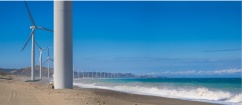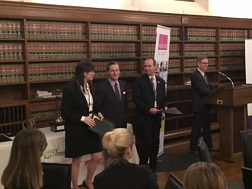Programs
Specialize in maritime law or environmental law... or both!
A global centre of excellence for research, education and outreach in oceans and environment law and policy, the Marine & Environmental Law Institute, and the Marine & Environmental Law Program (MELP) offer some of the world's most extensive course offerings in marine and environmental law taught by faculty whose leading-edge research and scholarship are widely cited internationally.
Marine & Environmental Law Program (MELP)
JD MELP certificate program
WithÌý17 full and part-time faculty members currently teaching in the program, students have a unique opportunity to learn about public and private law practice in marine (including shipping) and environmental law taught from domestic and international perspectives.ÌýStudents wishing to specialize in these fields have the option of obtaining a certificate of specialization in either Marine LawÌýor Environmental Law or both, while completing the three-yearÌýJD degree.
Ìý
Graduate programs
LLM program
The Master's degree allows students to pursue research in marine and environmental law by course work and thesis, or by coursework alone. The LLM program ordinarily takes a year of full-time study but it may also be completed on a part-time basis.
PhD program
The primary requirement for the Doctoral degree, aside from one year of residency, is the completion of a substantial dissertation in marine or environmental law. Opportunities for teaching and research may also be available.
Learn more aboutÌýgraduate admissions and scholarshipsÌýat the Schulich School of Law.





